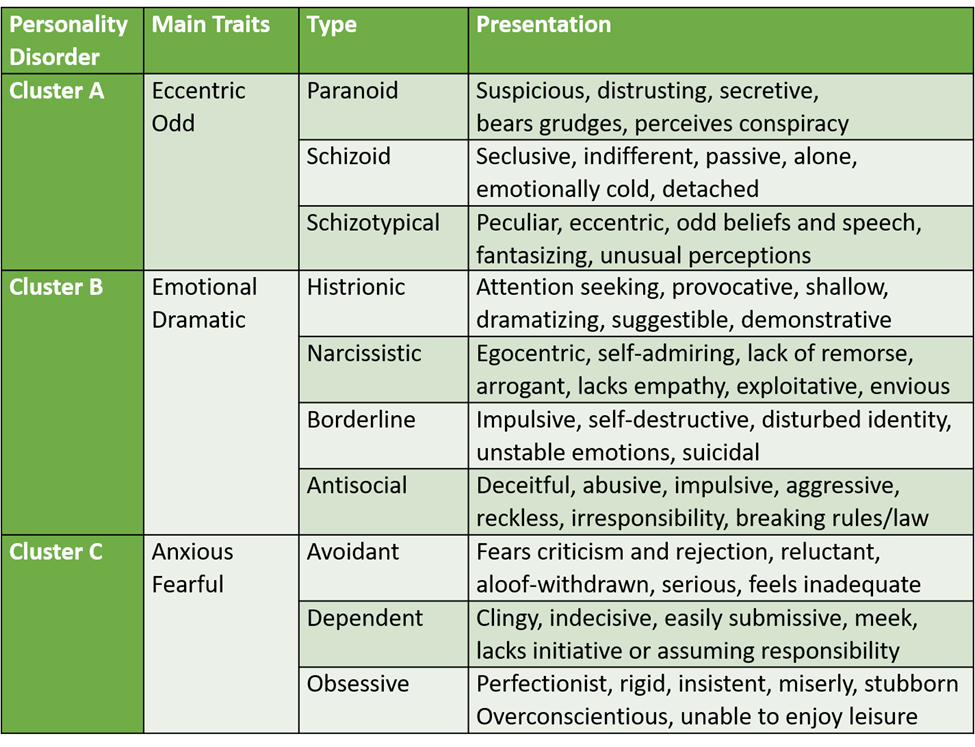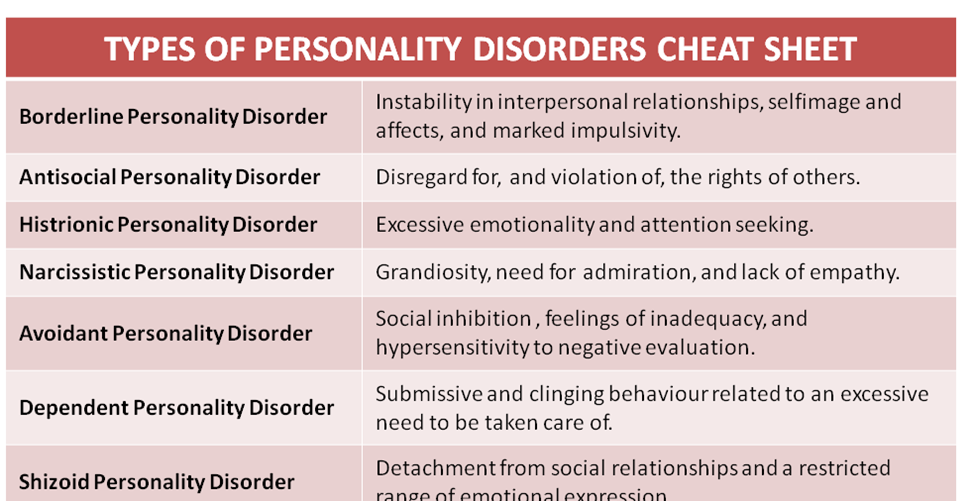Which nursing diagnosis should be prioritized when providing care to a client diagnosed with paranoid personality disorder?
Social isolation RUT inability to relate to others
Risk for suicide R/T altered thought
Altered sensory perception RUT increased levels of anxiety
Risk for violence: directed toward others R/T suspicious thoughts
The Correct Answer is D
A. Social isolation R/T inability to relate to others
While social isolation may be a concern for individuals with paranoid personality disorder, the immediate safety risk associated with the disorder is more related to the potential for violence. Therefore, addressing the risk of violence takes precedence.
B. Risk for suicide R/T altered thought:
Paranoid personality disorder is not typically associated with a high risk of suicide. Individuals with this disorder are more likely to pose a risk to others due to their suspicious thoughts and mistrust. Suicide risk assessments are crucial but may not be the top priority in this specific case.
C. Altered sensory perception R/T increased levels of anxiety:
Paranoid personality disorder does involve heightened levels of anxiety, but altered sensory perception is not a primary characteristic of the disorder. Addressing anxiety is important, but the potential for violence toward others is a more immediate concern.
D. Risk for violence: directed toward others R/T suspicious thoughts:
This is the most appropriate priority. Individuals with paranoid personality disorder may have intense mistrust and suspicion, leading to the potential for aggressive or violent behavior directed toward others. Prioritizing safety and preventing harm to others is crucial in the care of clients with this disorder.

Nursing Test Bank
Naxlex Comprehensive Predictor Exams
Related Questions
Correct Answer is D
Explanation
A. Histrionic Personality Disorder:
Individuals with histrionic personality disorder typically seek attention and may be overly dramatic, but self-harm as a response to perceived abandonment is not a characteristic feature.
B. Obsessive-Compulsive Personality Disorder (OCPD):
People with obsessive-compulsive personality disorder are characterized by perfectionism, preoccupation with details, and a desire for control. Michelle's behavior, including self-harm in response to perceived rejection, aligns more closely with borderline personality disorder.
C. Narcissistic Personality Disorder:
While narcissistic individuals may exhibit a sense of superiority and a desire for admiration, self-harm in response to abandonment is not a typical trait of narcissistic personality disorder.
D. Borderline Personality Disorder (BPD):
This personality disorder is characterized by unstable relationships, self-image, and emotions. Individuals with BPD may have intense fears of abandonment and engage in impulsive and self-destructive behaviors. Michelle's perception of being disliked, her claim of superiority, and the self-harming action in response to news of the nurse's vacation are consistent with BPD.

Correct Answer is B
Explanation
A. Altered thought process related to hallucinations: While altered thought processes are common in manic episodes, hallucinations are not typically associated with mania in Bipolar I disorder. Hallucinations are more commonly seen in psychotic disorders.
B. Risk for violence related to poor impulse control and judgment: This is the correct priority diagnosis. During a manic episode, individuals may have impaired impulse control and poor judgment, increasing the risk of impulsive and potentially violent behaviors. Ensuring the safety of the client and others is the priority.
C. Altered thought process related to poor judgment: While altered thought processes and poor judgment are characteristic of mania, the specific concern in this scenario is the potential for violence. The risk for violence takes precedence as a priority nursing diagnosis.
D. Social isolation related to mania: Social isolation may be a concern, but the immediate priority is addressing the risk for violence, as it poses a more significant threat to the client and others during a manic episode.
Whether you are a student looking to ace your exams or a practicing nurse seeking to enhance your expertise , our nursing education contents will empower you with the confidence and competence to make a difference in the lives of patients and become a respected leader in the healthcare field.
Visit Naxlex, invest in your future and unlock endless possibilities with our unparalleled nursing education contents today
Report Wrong Answer on the Current Question
Do you disagree with the answer? If yes, what is your expected answer? Explain.
Kindly be descriptive with the issue you are facing.
